Greece is renowned for its wonderful rugged landscape, its untouched gems, its endless coastlines, and its 6,000 islands and islets, famous all over the world, due to their unparalleled beauty.
The number of international tourist arrivals rose from 15,000,000 in 2010 to over 16,000,000 million in 2011, marking a 10% increase. This year 17,000,000 (almost twice the country’s population) international tourist arrivals are expected.
Beyond sea and sun, tourism forms an essential part of Greece’s identity, present and future.
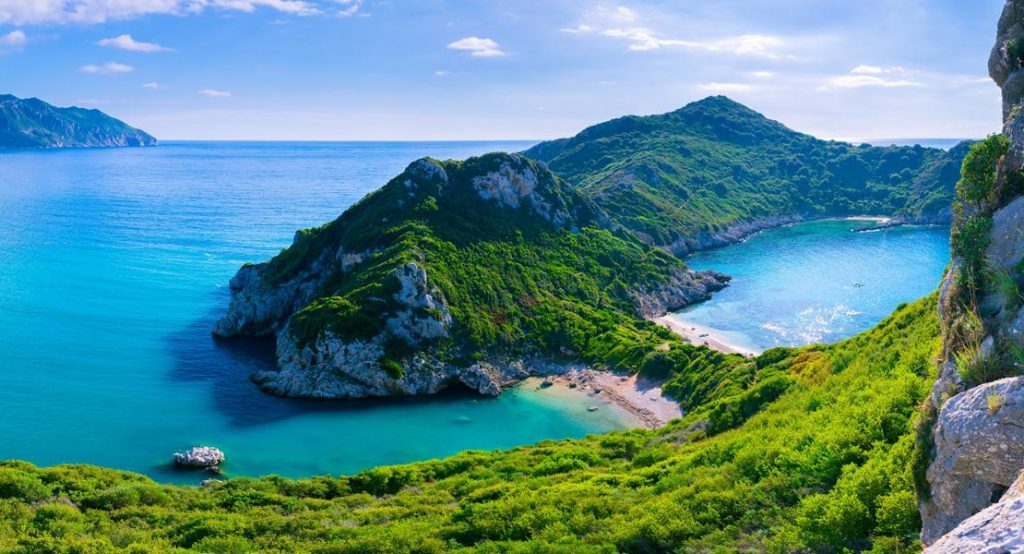
Best Mainland destinations
The Greek Mainland is basically famous for its rich history of more than 2.500 years. The most important ancient sites and temples of Ancient Greek Civilization are located here and the majority of them are listed as UNESCO World Heritage Sites. These are some: the Acropolis in Athens, the Ancient Theatre of Epidaurus, the Tombs at Mycenae, the stadium where the ancient Olympic Games were held in Olympia in Peloponnese, Delphi in Sterea, Ancient Dodona in Epirus, Dion and Ancient Philippi in Macedonia and more.
Most of them can be easily accessed with tours from Athens.
Although mainland Greece is not as popular as the Greek islands, it provides interesting sightseeing, amazing landscapes, beautiful towns and wonderful beaches. The amazing and mysterious Meteora are located in the Greek Mainland as well and is one the most visited places in Greece. This amazing natural wonder will leave you speechless and is a top destination for hiking, climbing and landscape photography.
The most tourist developed places in the mainland are Halkidiki and Parga with amazing beaches and crystal blue waters. Various coastal towns of the Peloponnese such as Nafplio, the first Capital of Greece and Kalamata, are gaining huge reputation especially for family holidays.
Last but not least, the mainland has potentials to develop tourism all year round. It provides gorgeous nature to hike in spring, sightseeing to explore off the beaten track and even ski centers for the wintertime, whereas Athens and Thessaloniki are very popular City Break destinations.
https://www.greeka.com/greece-best-mainland/

What is the best time of year to visit Greece?
Tourist season in Greece is officially April through October, with July and August being the two high season months. If you are looking for privacy, relaxation and less crowded places, then you should prefer the period between April and June. During this season, it will be easier to find budget accommodation and to book tickets for your transportation to and from Greece. Of course, there is always a high season that lasts from mid-July until late August. The popular Greek islands receive the majority of visitors these two hot months, but the more secluded islands keep their calm atmosphere.
Although Greece is mostly popular for summer vacations, tourists should also know that the Greek mainland constitutes a wonderful destination for winter city breaks and ski holidays. Athens is so enjoyable off-season when the ancient sites are not packed with tourists and the weather is not so hot. The most popular ski centers in Greece are Arachova and Kalavryta, while many other centers are found in northern Greece.
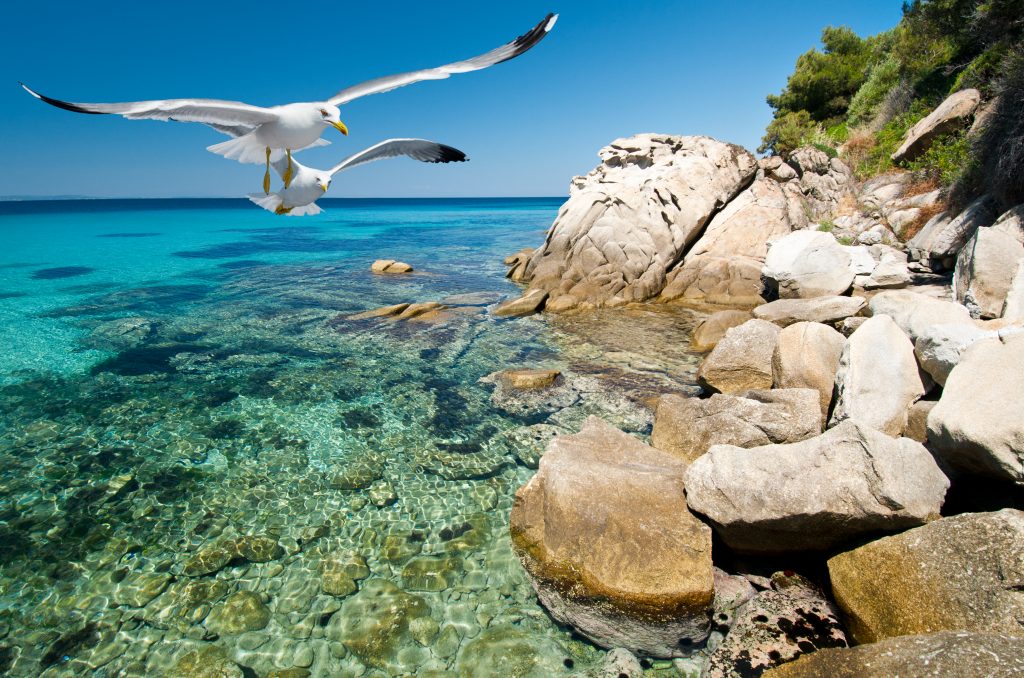
Agrotourism: It comes naturally!
About Greece – Food and Gastronomy
Agrotourism (rural tourism), recently developed in Greece, is a mild form of sustainable tourist development and multi-activity in the agricultural sector, practiced by demanding tourists who are not satisfied with conventional forms of tourism and who, therefore, seek alternative experiences.
Agrotourism promotes the cultural heritage of each area, giving visitors the opportunity to get acquainted with nature and everyday rural life, as well as local customs and traditions, all without altering the character of the countryside. At the same time, agrotourism supports the sustainable development of the country side by engaging the local society.
In Greece, many businesses throughout the country offer agrotourismprogrammes in the form of agrotourism catering and recreation centers, travel agencies organizing outdoor activities, excursions of ecotourism as well as local festivals where one can participate in cooking and popular art workshops.

Wine tourism has been also developing in Greece, in regions like Crete, the Aegean islands and Central Greece. It is most developed Northern Greece through the Wine Roads programme, sponsored by the Wines of North Greece Organization. It advises visitors to follow a carefully selected route, passing through the most picturesque areas of a viniculture zone and visit select wine-producing units, sample local wines accompanied by the traditional degustation of the region and explore traditional settlements, archaeological sites and various other tourist attractions.
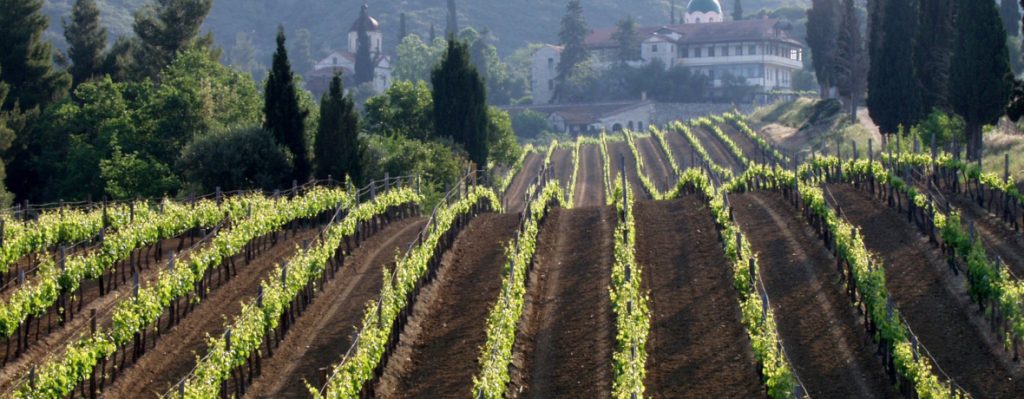
https://www.mfa.gr/switzerland/en/about-greece/tourism/
Information about Nature in Greece
The nature of Greece has a rich diversity. Located on the crossroads of three continents (Europe, Africa, and Asia), the landscape of the country has been largely affected by the close regions and hosts a variety of flora and fauna.
Two-thirds of Greece is mountainous and about 25% of the total surface is covered with forests. These forests mostly consist of fir, oaks, poplars, plane trees and bushes. Some distinguish as aesthetic forests, like the Virgin Forests of Rodopi in northern Greece, the Oak Forest in Foloi Peloponnese and the Black Fir Forest in Kefalonia. For protection from human activity, some regions have been declared as National Parks.
The territory of Greece is largely composed of limestone, which is why many underground caves have been formed. Particularly the caves with stalactites and stalagmites are a miracle of nature.
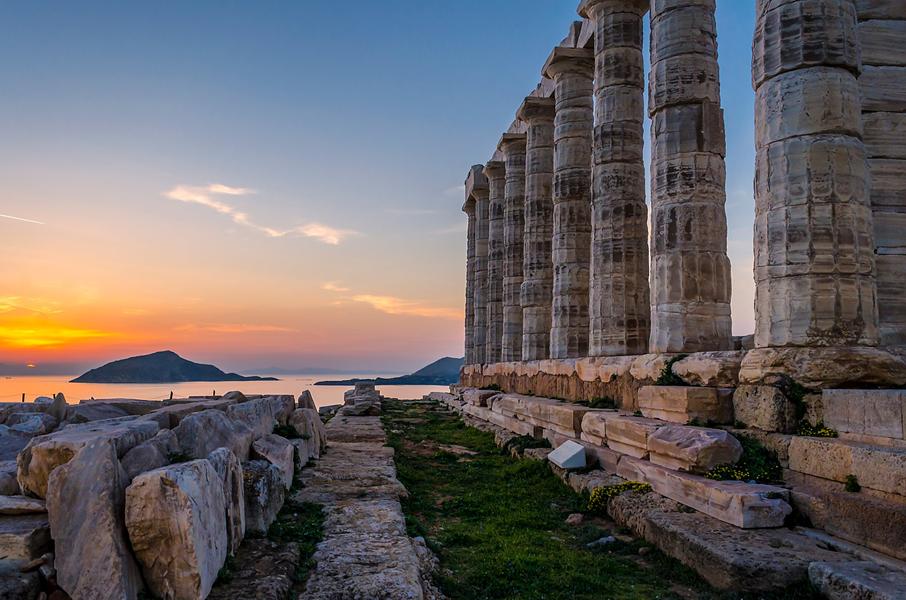
Zakynthos
Zakynthos or Zaente , is a Greek island in the Ionian Sea. It is the third largest of the Ionian Islands.
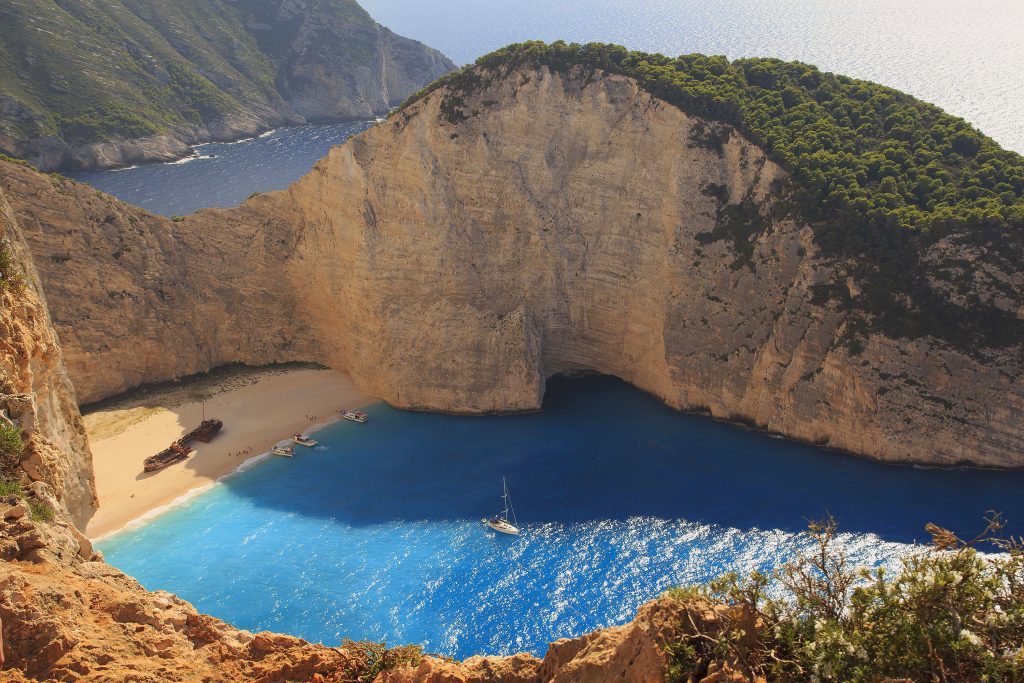
History
Zakynthos (also called Zante) island has been known since the mythical years. It is clear that its neighbourhood with the Peloponnese, its size and the fertility of its land marked by early exceptionally favourable conditions for colonization.
Zakynthos both in classical and Hellenistic to Roman times always plays a part, the one that its location and size permit it, contributing that way to the historic events of each period. For the exact time that Christianity was spread into the island of Zakynthos there is no historically attested information, although it is concluded that the new religion prevailed not before the middle of the 3 rd century AC.
Recommendations
The lacy beaches make Zakynthos extraordinary. With sand or pebbles, with beach bars and water sports or without, long beaches or tiny bays, secluded or not, the options are endless.
Activities
• Trip to Blue Caves and Navagio http://potamitisbros.gr/
• Scuba Diving http://nero-sport.de/en/
• Trip to Marathonisi
• Askos Stone Park http://www.askos.gr/en/index.php
• Tsilivi Water Park
Beach
• Navagio
• Marathonisi
• Porto Limnionas Beach
• Banana Baya
• Tsilivi
Attractions
• Navagio
• Blue Caves
• Venetian Fortress of Zakynthos
• Agios Dionisios Church
• Town
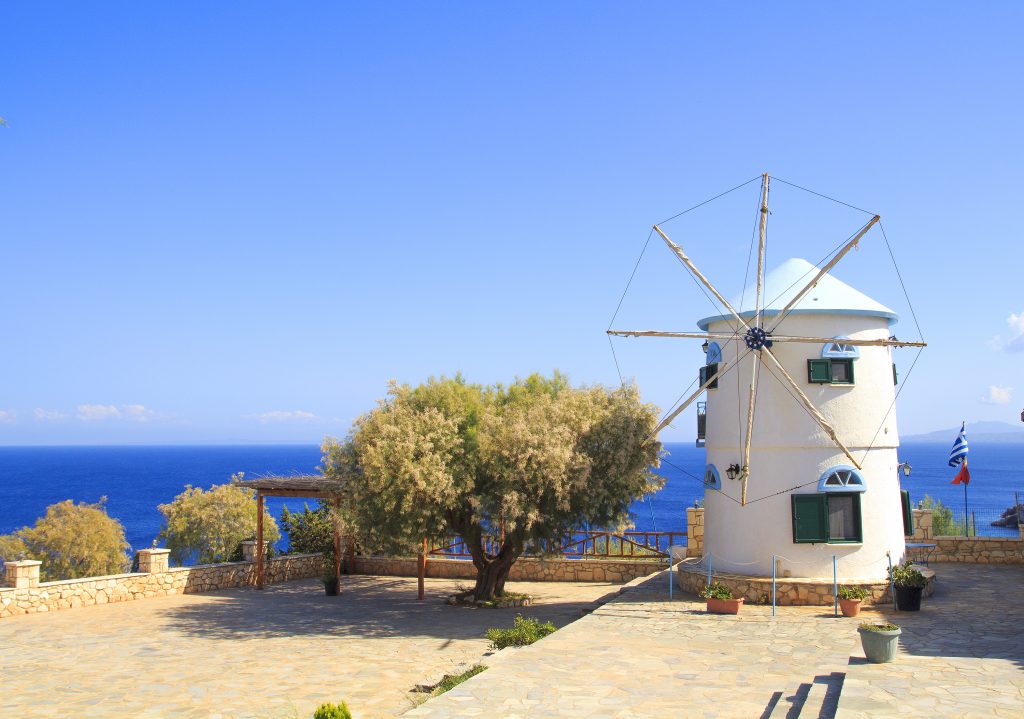
Chania
Chania is the second largest city of Crete and the capital of the Chania regional unit. It lies along the north coast of the island, about 70 km west of Rethymno and 145 km west of Herakli
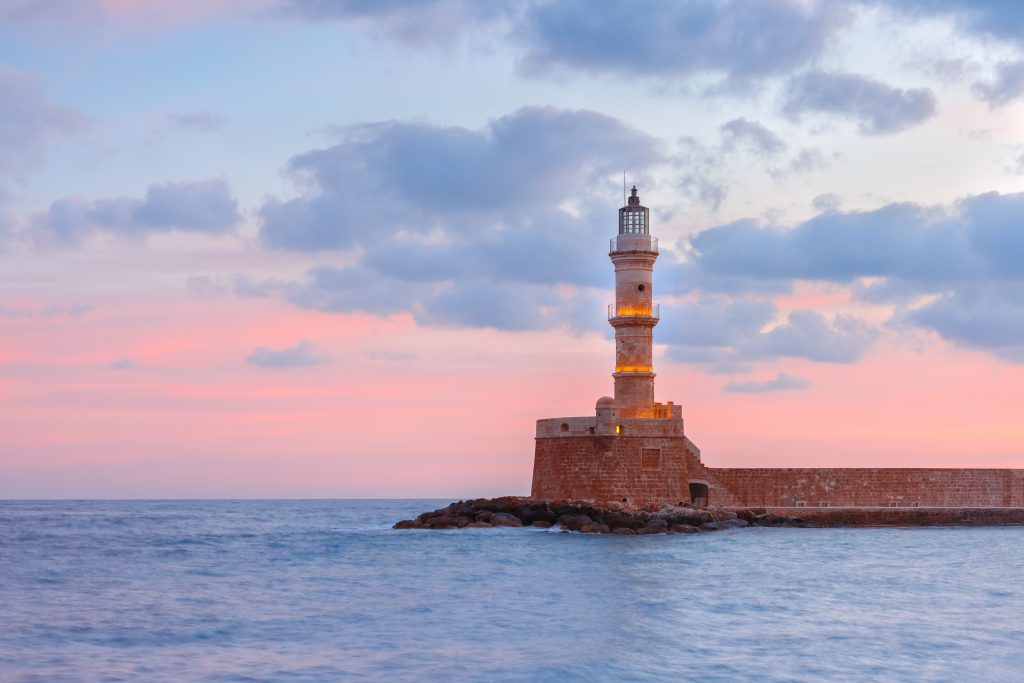
History
The history of Chania began in the Neolithic period, when the first inhabitants of the site created a settlement on the low hill of Kastelli, now above the Venetian harbour. The hill was chosen not for its wonderful view but for its defensive properties. Any height provides timely warning of an enemy’s approach and is harder to attack, especially if it has steep sides making access difficult or impossible.
After archaeological excavations it was revealed with certainty that in the position of the present day city- the position of Kastelli – Kydonia was built in ancient times, which was built by the Kydones, the most ancient peoples who were already mentioned by Homer. Herodotus however gives another version for its settlement according to which the people of Samos rebelled against the tyrant Polykrati and having kicked out the Zakynthians, occupied Kydonia and rebuilt it in 519 B.C. What is important is the the city was preserved and during the Roman years flourished since it provided a theater and other public buildings. It sustained its prosperity until its occupation by the Arabs (823-961 A.D.). The city exhibited growth during Venetian rule and was the center of the province. On 11 August 1645 the city went under Turkish rule after a two-month seige. In 1898 after the departure of the Turkish army in Chania, it was designated the capital of the Cretan State (1898-1913). At the fortress Firka the first Greek flag was raised which meant the Union of Crete with Greece in 1913.
Recommendations
You really should try traditional Cretan cuisine during your stay in Chania at some of its taverns and restaurants. As far as nightlife is concerned, Chania town satisfies all your wishes and demands. You can be sure of one thing: you will leave here brimming with beautiful picture postcard images.
Activities
• Diving http://www.chaniadiving.gr
• Samaria Gorge Hike
• Paragliding http://www.paragliding-crete.gr/
• Horse Riding http://www.zoraidas-horseriding.com/
• Bungee Jumping http://www.bungy.gr/
Beach
• Falassarna
• Elafonisi
• Balos-Gramvousa
• Seitan Limania
• Plaiochora
Attractions
• Old port
• Egyptian Lighthouse
• Venizeloi tombs
• Firka Fortress
• Municipal Market
• Milia https://www.milia.gr/
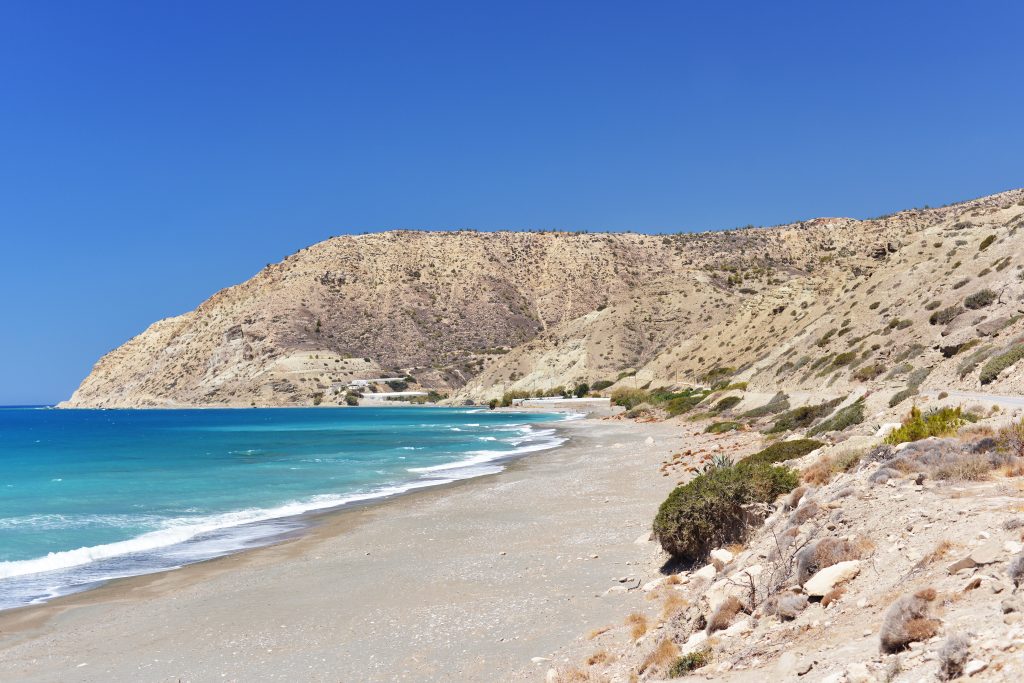
Heraklion
Heraklion is the largest city and the administrative capital of the island of Crete. It is the fourth largest city in Greece and the third urban area in Greece.
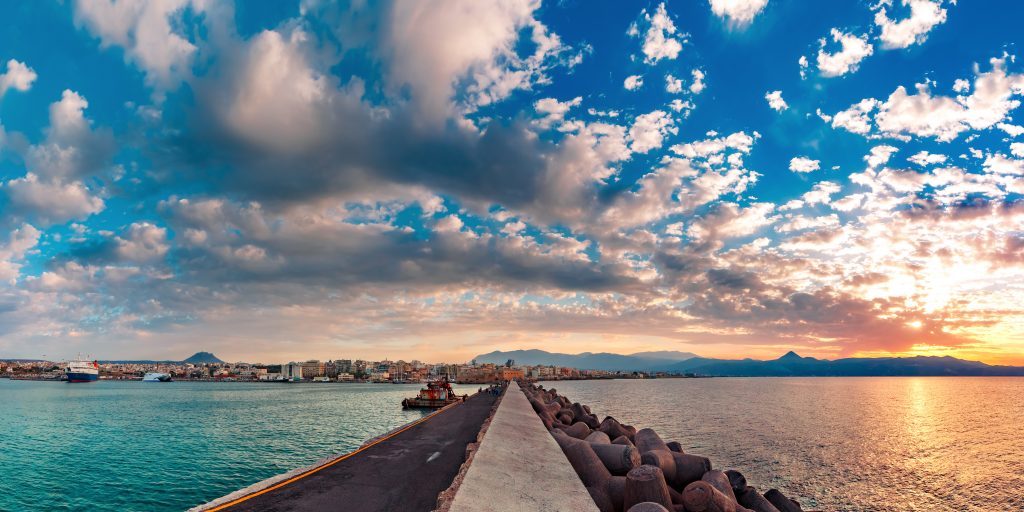
History
Heraklion is close to the ruins of the palace of Knossos, which in Minoan times was the largest centre of population on Crete. Though there is no archaeological evidence of it, Knossos might well have had a port at the site of Heraklion as early as 2000 BC.
The present city of Heraklion was founded in 824 by the Arabs under Abu Hafs Umar who had been expelled from Al-Andalus by Emir Al-Hakam I and had taken over the island from the Eastern Roman Empire. They built a moat around the city for protection, and named the city ربض الخندق, rabḍ al-ḫandaq (“Castle of the Moat”). It became the capital of the Emirate of Crete (ca. 827–961). The Saracens allowed the port to be used as a safe haven for pirates who operated against Imperial (Byzantine) shipping and raided Imperial territory around the Aegean.
In 1898, the autonomous Cretan State was created, under Ottoman suzerainty, with Prince George of Greece as its High Commissioner and under international supervision. During the period of direct occupation of the island by the Great Powers (1898–1908), Candia was part of the British zone. At this time, the city was renamed “Heraklion”, after the Roman port of Heracleum (“Heracles’ city”), whose exact location is unknown.
In 1913, with the rest of Crete, Heraklion was incorporated into the Kingdom of Greece. Heraklion became capital of Crete in 1971, replacing Chania.
Recommendations
During your stay in Heraklion don’t forget to try some of the traditional local cuisine dishes at one of the tavernas or restaurants. As far as nightlife is concerned, Heraklion will meet all your expectations.
Activities
• The Crete Golf Club http://www.cretegolfclub.com/
• Sailing in Crete https://www.heryc.gr/gr
• Cretaquarium https://cretaquarium.gr/
• Matala Beach Festival (June) http://www1.matalabeachfestival.com/?kw=travel%20and%20tours
• Pierra Creta Ski Mountaineering Race (March) http://www.pierracreta.gr/en/
Beach
• Agiofarago
• Mavri Paralia
• Lentas
• Ligaria
• Limanakia Hersonissos
Attractions
• Agios Minas
• Loggia
• Knossos
• Lion’s Square
• Koules
Santorini
Santorini, classically Thera, and officially Thira, is an island in the southern Aegean Sea, about 200 km southeast of Greece’s mainland.
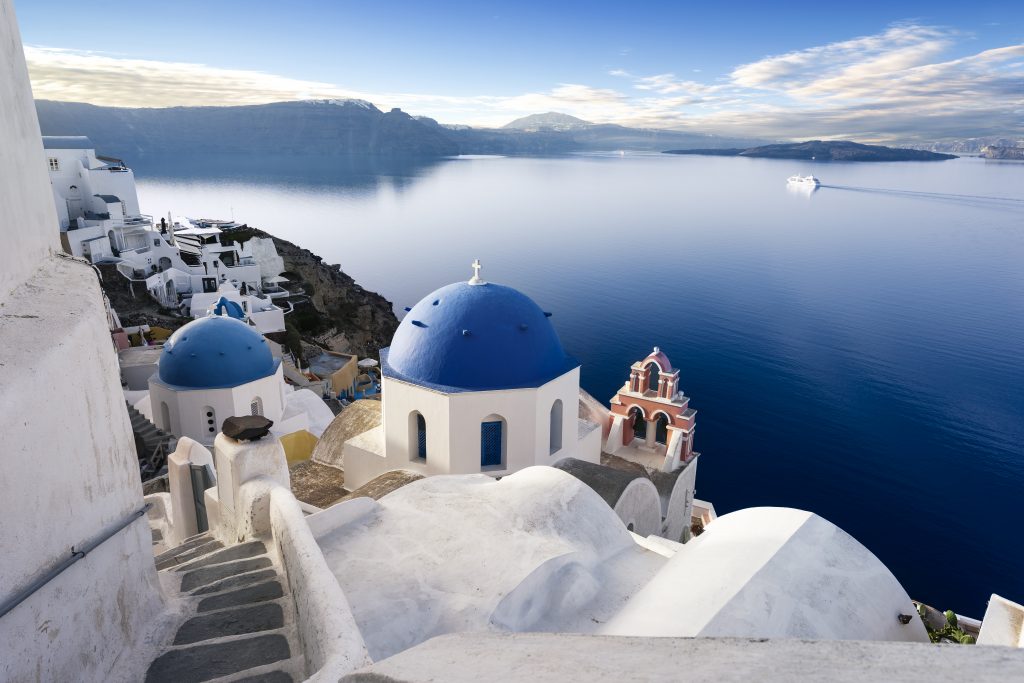
History
Santorini or Thera is an island with great history and if you decide to come round there are a lot of sights to visit.
According to the researchers the human presence on the island seems to have existed since the Neolithic Period. Around 3.200 BC Santorini was inhabited by the Cretans who had a great impact on the island’s life. Santorini became an important and wealthy port. The Minoan influence is obvious especially at the excavations on Akrotiri, where a whole village is found, with houses decorated similar to those found in the Minoan palace in Crete. At that time the island was called Stronghyle, or Strongili, which in Greek means round, because of its shape. Nowadays Santorini is an international resort, undoubtedly one of the major tourist destinations, attracting people worldwide who come to experience its magic atmosphere and the unique and famous sunset.
Recommendations
Here you will find beaches for all tastes and budgets, a variety of entertainment choices, as well as thousands of images and landscapes that will surely remain etched in your memory
Activities
• Aegean Divers http://www.aegeandivers.com/
• Private Yacht Cruise https://istion.travelotopos.com/c/2
• Visiting Santo Wines https://www.santowines.gr/en/
• Visiting La Ponta http://www.laponta.gr/
• Donkey Rides
Beach
• Kamari Beach
• Perissa Beach
• Perivolos Beach
• Red Beach
• Ammoudi Beach
Attractions
• Imerovigli
• Donkeys
• Santorini Arts Factory
• Firostefani
• Caldera
• Ancient Thira
Mykonos
Mykonos is a Greek island, part of the Cyclades, lying between Tinos, Syros, Paros and Naxos.
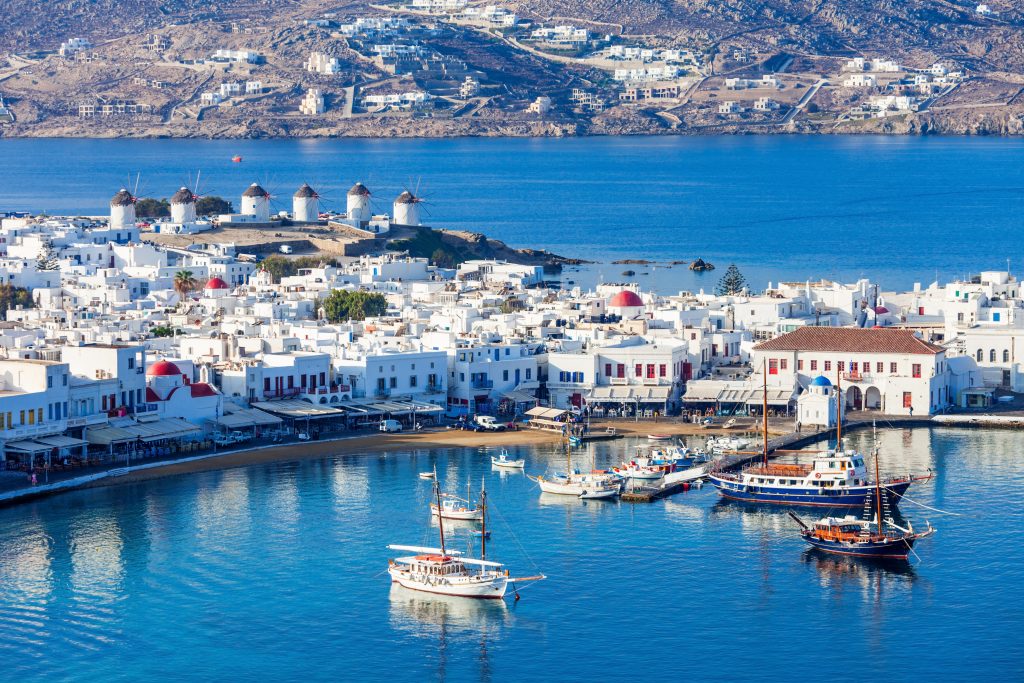
History
The island’s economy declined during the late 19th century, due to occurrences and events such as the opening of the Corinth Canal in 1904 and World War I. Many Myconians were amongst the Greeks that abandoned the island to find work in mainland Greece (mainly Athens and Piraeus) as well as in foreign lands of opportunities such as the US. Tourism as the answer to the local economy issue became apparent in the following decades, especially after the important excavations of the French School of Archeology began in Delos in 1873, bringing to light some very interesting findings.
Lovers of the Greek history and mythology were drawn to the region and started discovering along with the ancient ruins, also the virgin island of Mykonos and the famous Greek hospitality. It was so that in the early 30’s, many famous artists, politicians and wealthy Europeans were spending their vacation in Mykonos, attracting attention and putting the island on the map, so to speak.
Resurrecting after the catastrophic aftermath of World War II, Mykonos found its path back to growth and flourished as a very popular destination for the rich and famous during the 50’s. From then on, Mykonos has become the cosmopolitan island and famous tourist destination that we know it to be today. With its traditional architecture, the white-washed houses, the narrow streets “kalderimia” and the exuberant natural beauty that surrounds it, Mykonos remains a favourite amongst the most discerning travellers.
Recommendations
Here you will find beaches for all tastes and budgets, a variety of entertainment choices and thousands of images and landscapes that will surely remain etched in your memory.
Activities
• Kalafati Dive Center http://www.mykonos-diving.com/en/startseite/
• Elia Water Sport Center http://www.eliasuites.com/mykonos-watersports.htm
• Poseidon Motor Yacht http://www.mykonos-yachting.com/
• Windsurf Center http://www.pezi-huber.com/
• Mykonos Diving Center http://www.dive.gr/
Beach
• Agios Ioannis beach
• Ornos beach
• Psarou Beach
• Platis Gialos
• Agia Anna Beach
Attractions
• Delos
• Mills
• Little Venice
• Armenistis
• Gialos
Greece Beaches
Greece is famous all over the world for its fabulous sandy beaches with crystal water. The country has the largest coastline in Europe (13,676km) and therefore, thousands of beaches are available to the visitors. The beaches are very safe without waves, currents, sharks or poisonous fishes. For this reason, millions of tourists come to Greece and the Greek islands every year to enjoy the sea, sand and fresh air on the beachside.
List with the best 30 beaches in Greece
All the Greek beaches have their own beauty and charm. The beaches below are considered the most beautiful in Greece (by our team and public opinion).
Discover the best beaches: Balos in Crete, Myrtos in Kefalonia, Porto Katsiki in Lefkada, Super Paradise in Mykonos, Navagio in Zakynthos, and more.
- Balos beach
- Myrtos beach
- Agios Prokopios beach
- Porto Katsiki beach
- Navagio beach
- Red beach
- Super Paradise beach
- Vai beach
- Sarakiniko beach
- Lalaria beach
- Kolymbithres beach
- Elafonisi beach
- Mylopotas beach
- Plaka beach
- Stafilos beach
- Koukounaries beach
- Saint Paul beach
- Valtos beach
- Kyra Panagia beach
- Simos beach
- Paleokastritsa beach
- Kavourotrypes beach
- Alyki beach
- Seychelles beach
- Chalikiada beach
- Kolona beach
- Tsigrado beach
- Voutoumi beach
- Mylopotamos beach
- Legrena beach
Greece Villages
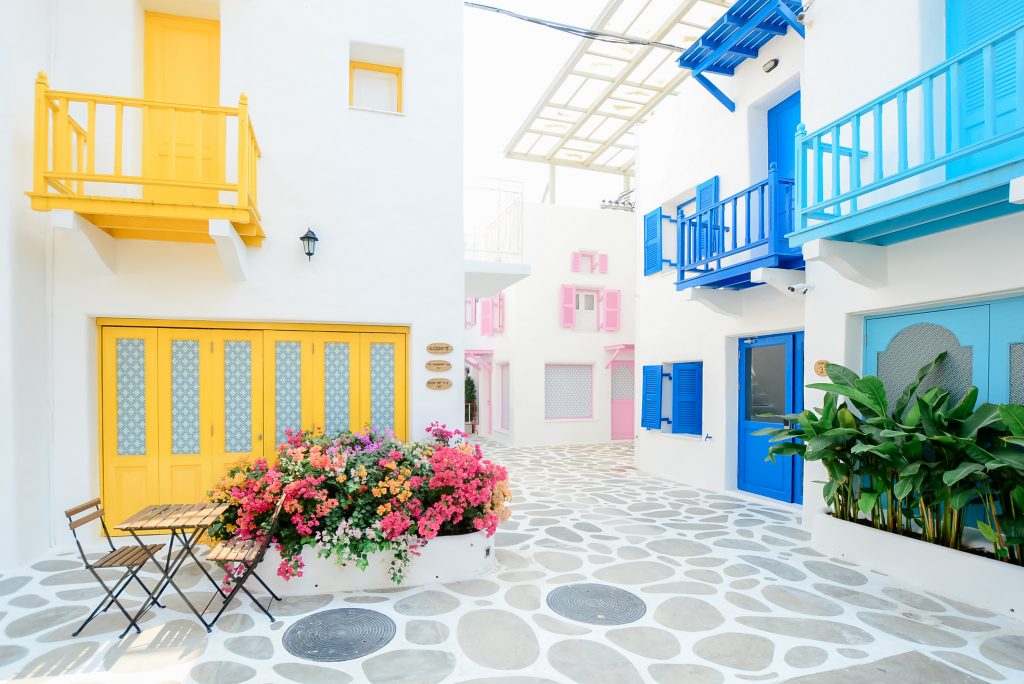
Villages in the Cyclades are usually constructed around a port or along the slopes of a hill with a breathtaking sea view. Houses are small and surrounded by flowered yards, no large block of flats. The window shutters and doors are usually painted in blue or other vibrant colors. Churches have white walls and blue domes, while the streets in the village center are narrow and paved. The capital of the Cycladic islands is usually called Chora. The most famous village in Greece is Oia, located on the Cycladic island of Santorini.
Due to the long occupation by Venetians in Medieval times, many Greek villages have evident Venetian architecture. The Old Town of Rhodes and Corfu are characteristic examples of this architecture with two or three-story residences, no balconies, and paved streets. Such old towns are found in other places, like Chania, Rethymno, and Heraklion in Crete, Monemvasia, and Nafplion in the Peloponnese. This is also why so many Venetian Castles are found all around the mainland country and the Greek islands.
The traditional style of mountainous villages has small stone houses, lovely yards, and paved square. Due to their remote location, mountainous villages have few inhabitants and truly authentic style. Pelion, Zagorochoria, and Peloponnese are regions with picturesque villages in the mountains. Most of them make their living from agriculture and cattle-breeding, while seaside villages mainly rely on tourism.
List with the best 10 villages
Although Greece is mostly famous for its wonderful beaches, it also has many villages that amaze visitors with its unique location and architecture. Whether in the islands or the mainland, the villages differ one from the other and each has a special, distinctive style. Here is a list of the best villages in Greece. We have also added a quarter of Athens, Plaka, as it looks exactly like a village.
- Oia village
- Rhodes Town
- Chora of Mykonos
- Town of Corfu
- Plaka neighborhood
- Fiscardo village
- Apiranthos village
- Olympos village
- Monemvasia Castle
- Makrinitsa village
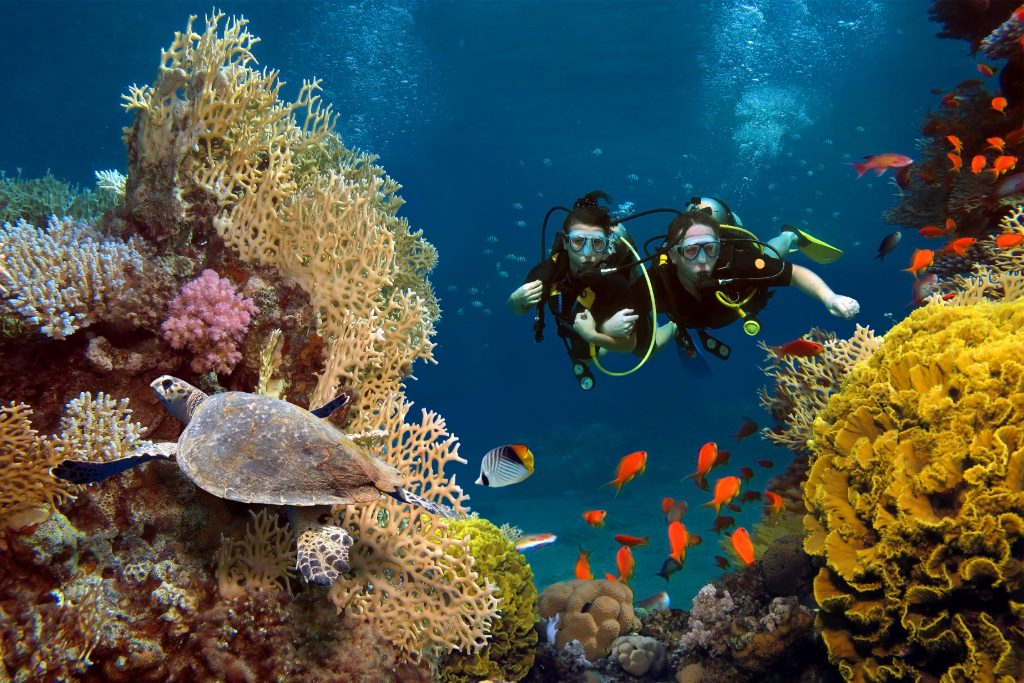
Sports in Greece
Most of all, Greece is popular for its amazing beaches, warm weather and delicious food. However, over the last years, Greece has become an up and coming destination for sports like extreme sports and water sports, as well as for alternative tourism.
At first, it was in the Greek islands where water sports like windsurfing, kitesurfing and scuba diving started becoming popular. Today, though, more and more sports clubs pop up all over the Greek mainland. Thanks to the abundance of beautiful natural landscapes, the Greek mainland is ideal for extreme sports, such as rock climbing, paragliding, bungee jumping and even skydiving.
Sports in Greece are gradually developing and many people visit Greece to take part in sports activities. Sports instructors in Greece are experienced and many of them have also worked in sports organizations abroad, so they speak foreign languages fluently!






















